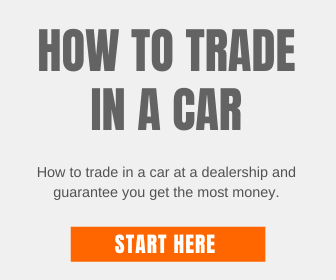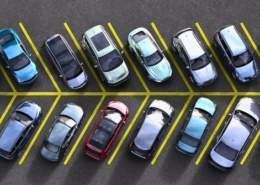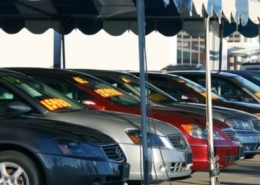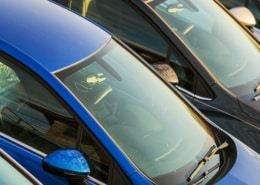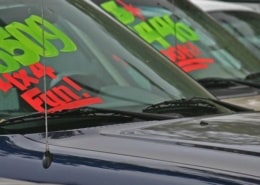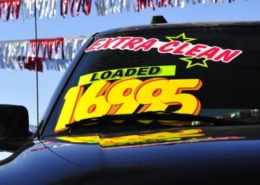Why are Used Cars So Expensive Right Now?
The increased demand for used automobiles and a still-recovering new car supply chain means that even when sales are down, supply and demand remain tight, allowing prices to remain high but stable.
Even in the greatest of conditions, used automobile sales may fluctuate yearly. However, since the beginning of 2020, prices have been steadily rising. The average cost of a used automobile had increased to $21,558 by the summer of last year. Prices have only grown since then, much to the amazement of some.
What’s Up With Used Car Prices?
If you haven’t changed your car recently, you might be in for a shock when you decide it’s time. Used car prices have risen dramatically over the last year. By some estimates, they’re up 20%, and the Bureau of Labor Statistics, which calculates the Consumer Price Index, says they rose 10% in April 2021 alone.
Averages can be misleading, of course. Sought-after makes, and models will have gone up more while those less popular won’t have seen such big jumps. Then there are regional variations too. But with those points in mind, if you’re looking to buy a used car, you’ll almost certainly find they’re more expensive than before the pandemic.
As with everything related to car buying, it helps to be informed about what’s happening in the used car marketplace. Here’s an overview of the explanations and our take on what’s happening.
Is it the Economy?
Economics tells us that prices rise when demand exceeds supply. It doesn’t explain why the last 12 months have seen a shift in what had been a relatively stable situation.
To get a handle on that, we’ll dive into what’s driving the demand for used cars. Then we’ll look at the supply side. And last, we’ll offer some hints and tips for anyone shopping for a good used car.
What’s Driving Demand for Used Cars?
There seem to be several factors at work.
- People are avoiding public transport and ride-sharing
- New cars have become a lot more expensive
- People don’t want to take on debt
- Stimulus payments have put money in people’s pockets
The first of these points is pandemic-related. Bus and train services have reduced, and people don’t want to be near strangers or in a car previously used by someone else. That’s resulted in large numbers of mainly city-dwellers having to buy a car when they’d once managed to do without owning one.
A second factor is that manufacturers have cut the number of inexpensive models they offer. They’d rather sell higher-margin, loaded SUVs than stripped-out compacts. That’s pushed budget-minded buyers to look at newer used cars, so the number of buyers has increased.
Third, while most car buyers finance their purchases, current economic conditions have made many wary about taking on more debt. That again has pushed people who might have bought new to consider less expensive options, such as cars coming off lease.
Last, while many recipients undoubtedly used their stimulus payments for necessities, others were able to put them towards replacement vehicles.
Why is the Supply of Used Cars Declining?
Used cars start as new cars, and after three years if leased, or six to seven years if purchased, they get sold or traded in to make way for a new replacement. So why are fewer of these cars coming onto the used car market? There seem to be many reasons, but we can group them under these three headings:
- New car sales are down
- People haven’t been driving as much
- Car production is down
In a typical year, some 17 million cars are sold in the marketplace. In 2020, that dropped to 14.6 million. Some of those cars go to rental companies, selling them after a year or so. Nobody was renting last year, so the rental companies stopped buying new vehicles. What’s more, you may recall that through March and April 2020, just about everything was shut down, including car dealerships. For a while, not very many cars were sold in the marketplace.
In parallel, people seem to be holding on to cars longer. Reasons for this include not driving as many miles (because they were working from home) and the high price of new vehicles. Linked to this, it seems more people are buying their car when the lease runs out, partly because they’re worth more than what they have to pay the lease company.
Last, the pandemic almost halted car production during the second quarter of 2020. Factories were shut or staffed by skeleton crews, and when they did start up, it took only a single positive test result to send everyone home again.
Then, as the factories began ramping up output, a funny thing happened: they couldn’t get the semiconductor chips that run so many of the electrical systems in modern vehicles. It’s believed this is another consequence of the pandemic: chips went into the gaming consoles and laptops everyone bought while they were stuck at home, leaving too few to meet demand from automakers.
In response, carmakers scaled back production and focused on their higher-margin models. (This is one reason new car prices are up.) So, people looking to buy a new car find fewer choices, and the prices are higher.
Options for Someone Who Wants to Buy a Car
Bargains are thin on the ground, but you’re not without options. There are still some good deals, but you may have to do a little more research to find them.
Here are some ideas if you’re in the market to buy or sell a used car:
- If you want to sell or trade an automobile, its value has likely increased in tandem with the used car market. Don’t get sucked in with a dealer’s advertising. Find out what your car’s worth before visiting the dealership.
- Look for models less in demand. Sure, an SUV would be nice, but you’ll probably find better value if you look at sedans, hatchbacks, or minivans.
- Consider a car with higher mileage. While buyers stayed away from vehicles with over 100,000 miles in the past, advances in reliability mean many will offer years more service.
- Although I am not a fan of this option, desperate times may call for desperate measures. If you’re currently leasing, check the contract for the price-to-buy. Then find out what the vehicle is worth in the used car market. Before buying it from the lease company, don’t forget to factor sales tax into your decision and understand all the figures before signing on the dotted line.
Buy a Used Car Now or Wait?
If you want to buy a new car, or at least one new to you, this probably isn’t a great time. However, you may not have much choice if you need a vehicle for work or school. The key to finding a good deal, or at least one you can live with, is to do your homework. That means knowing what you can afford and researching what you’ll have to pay. (One glimmer of good news: interest rates are still low if you have good credit.)
Many potential buyers will wonder if this jump in used car prices is a temporary blip or something more permanent. We’ll defer to the independent authority on car quality and reliability, J.D. Power.
Their somewhat nuanced view is, “The current pandemic-related spike is just an anomaly.” However, they also caution that “… expect these trends to continue for the foreseeable future, as even after the pandemic has passed, used car prices are likely to continue rising.”
That seems to argue against holding out for lower prices in the future. So what can you do? Well, I suggest the best idea is to check in regularly with Auto Cheat Sheet for news and advice on car buying and selling.
Be a Savvy Used Car Shopper
The number one tip for saving the most money when shopping for a new or used car is to always, “DO YOUR CAR BUYING HOMEWORK FIRST!” For more hints and tips on navigating the new and used car buying process, spend a little time upfront before beginning your car shopping journey by browsing through my 100% free online car buying guide – AutoCheatSheet.com.
I recommend using an online referral service such as Ryde Shopper, Motor Trend, or Cars Direct before visiting a car dealership. Their free online price quotes will automatically include any discounts or cash-back incentives currently available in the marketplace.
Leading up to the last day of the year, learn how to use free online new car price quotes to get an even better price by having dealerships compete online.




